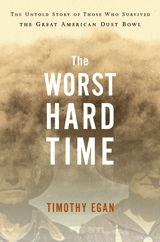Not that you'd particularly know it from the Oscars. An unusually bland, safe, and boring selection this year. Yeah yeah, they chose some "darker indie films" but what choice did they have? The studios produced so few good movies this year that the Academy's back was to the wall. And they still punked out.
At least the Oscars give me an excuse to air my Best Movies of the Year list since I was too far behind in my viewing to post it in January. Still haven't seen
Cache,
Mysterious Skin, and a few other celebrated films. But this year's crop was so strong that my picks for 11-20 could have easily been my Top 10 in just about any other season. And there were plenty of wonderful movies that didn't even make the list, from fun popcorn fare like
Batman Begins to smart political thrillers like
Syriana, Munich, and
The Constant Gardner to quirky gems like Y
ou Me and Everyone We Know. Anyhow, the list:
1) The Century of the Self
Visionary doc about the direct role Freud's theories have played in advertising and gov't, tracing Freud's nephew Alan Bernais - who invented the term "public relations" and was later employed by the CIA - and his daughter Anna, who was also hired by the government in the late 40s and whose ideas about therapy were based on her beliefs that analysis should help people conform to their environments and smooth over any deviations. Also looks at the 60s backlash against these ideas and how radical politics were later co-opted by the self-centered pursuits of EST in the 70s and by advertisers who hit upon the idea that people can be made to feel like they are expressing their individuality through purchases. Commodify your dissent, indeed. The movie comes full circle by examining the Clinton and Blair governing philosophies of marketing political initiatives to target demographics. Even-handed, dense with factual backup, and filled with startling images and juxtapositions, director Adam Curtis unrolls his four hour narrative in an always entertaining and striking manner.
2) Memories of MurderA straightforward but hardly simple police drama that seems familiar at first but slowly reveals itself to be one of the most trenchant character studies, haunting crime stories, and layered meditations about obsession in ages. Filled with both unexpected humor and horror, it's also a very subtle critique of Korean history.
3) 2046Long rumored, many years in the making, Wong Kar-Wai's lovelorn epic bounces between Hong Kong in the 60s and the sc-fi world of the future. One of the most visually ravishing films ever made, it's brimming with terrific performances, dense narratives, and creates a sense of loss and longing so palpable you're sure those emotions have taken shape right in front of your eyes.
4) A History of Violence
A taut thriller worthy of Hitchcock. About how you can have two different personalities and be completely sane. Among other things. A perfect 90 minutes.
5) Old Boy
A cold-blooded Jacobean revenge tale worthy of Webster. With a nod to Tarantino and set in modern day Seoul. Virtuoso filmmaking.
6) ChainHalf-doc, half-drama, Jem Cohen spins a one-of-a-kind tale about people marooned in the nowhere zone along those endless, lookalike, mini-mall stretches of highway. Are you in New Jersey or the outskirts of Brussels? It all looks indentical and feels numbingly the same. Shot on locations in 10 countries and over 100 suburbs, it's a singular tour de force.
7) My Summer of LoveAh, the throes of teenage passion. This sun-drenched, delicate wisp of a film embodies those times when play-acting at being in love crosses the line into something else. Faking it so real you're beyond fake. And then back again.
8) The Holy GirlWith novelistic density, this film unspools its soap-opera plot in the most oblique manner possible while still making it magnetic. The story: Girl who lives in hotel has vision of Virgin Mary and falls for older guy who molested her but really wants her mother. The result: The transubstanciation of pulp into art.
9) The New WorldTerrence Malick's worst movie, which means it's still one of the most stunningly beautiful and jaw-dropping things you'll ever see. Career performance by 15-year-old newcomer who plays Pochahontas. Filled with lovely longeurs, radical editing, and an emotional whallop of an ending.
10) Werner Herzog trifecta: Grizzly Man; Wheel of Time; The White DiamondNone of these by themselves might been so high on the list, but together they attest to the continuing vitality and strangeness of The World's Greatest Documentarian. Herzog avoids the "facts of the bean counters" for the "ecstatic truth." Filled with oddball digressions and searing images, deadpan humor and moments of pure visual rapture.
THE BEST OF THE REST:11) The Beat My Heart Skipped
12) Brokeback Mountain
13) Last Days
14) Sympathy for Mr. Vengeance
15) Tropical Malady
16) The Squid and the Whale
17) Capote
18) Land of the Dead
19) Save the Green Planet
20) Saraband




